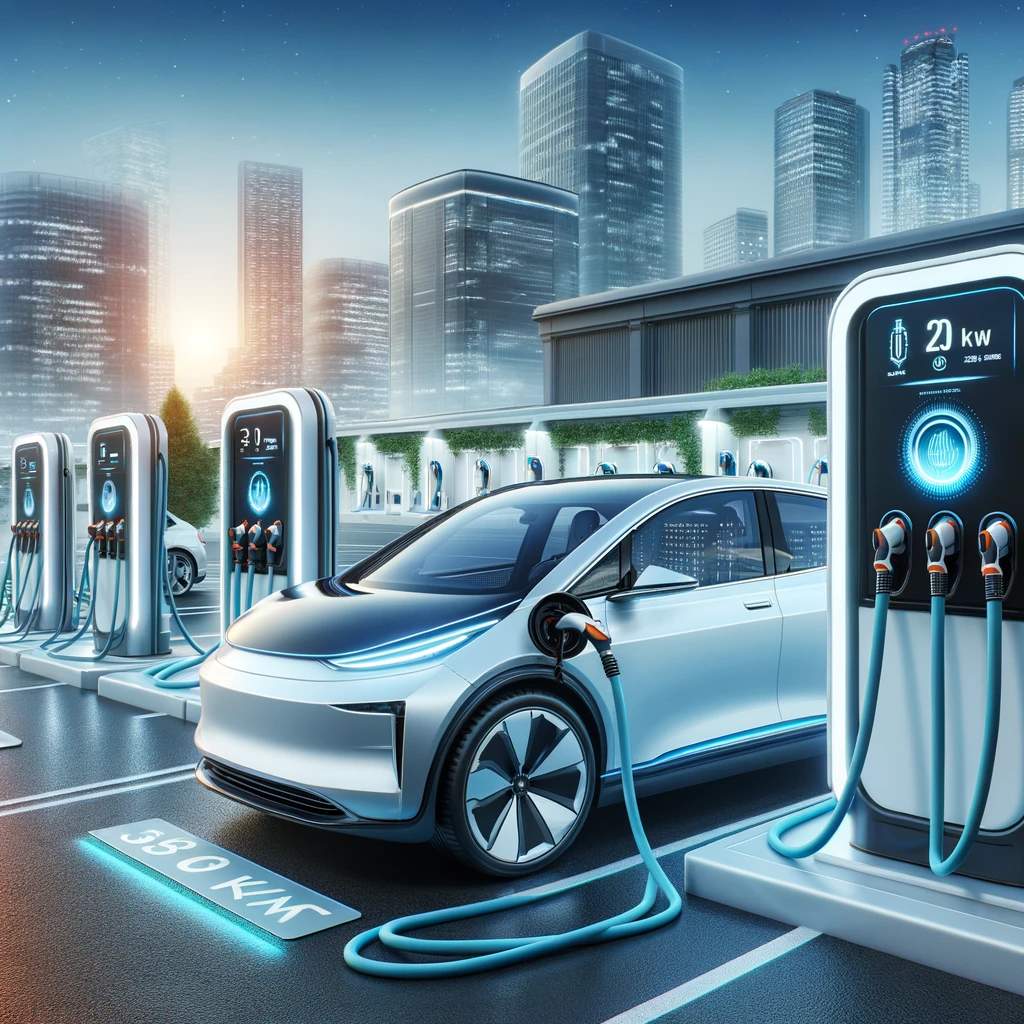Fast Charging Time for Electric Vehicles (EVs)
اخر تعديل: 2026-03-05 الكاتب: Sarah
[Car Tech Knowledge/ XNmotors]
Fast charging refers to the process of quickly replenishing the battery of an electric vehicle (EV) using high-power chargers, typically with a power output (typically with a 50 kW and 350 kW power output).

Source: AI
These chargers, commonly known as DC fast chargers or Level 3 chargers, are designed to significantly reduce the time required to charge an EV compared to standard chargers.
Fast charging uses specific standards, the most common being CCS (Combined Charging System) and CHA de MO (charge on the move), which are compatible with different car models. Some fast chargers, such as Tesla’s Supercharger network, are proprietary, but Tesla is expanding access to non-Tesla EV’s at certain stations.
The time it takes to fast charge a vehicle depends on several factors, including the EV’s battery capacity, the vehicle’s onboard charging system, and the charger’s power output. Generally, a fast charger can replenish 80% of a car’s battery in about 20 to 40 minutes. After reaching 80%, the charging rate typically slows down to prevent battery damage, which is why the last 20% may take longer.
For example:
• A charger rated at 50 kW can add around 200 km (125 miles) of range in approximately 30 minutes.
• Higher-powered chargers, such as 150 kW or 350 kW units, can offer even faster charging, with some models achieving 300 km (186 miles) of range in 10-20 minutes.
Fast charging is ideal for long road trips or for drivers who need a quick top-up while on the go. However, it is important to note that frequent fast charging can lead to increased battery degradation over time. This happens due to the heat generated during fast charging, which stresses the lithium-ion cells and can reduce the battery’s long-term capacity. For this reason, many EV manufacturers recommend limiting fast charging to occasional use.
Another factor to consider is the cost of fast charging. Public fast chargers, especially at high-powered stations like those on highways, often cost more per kilowatt-hour than slower charging methods. Some charging networks offer subscription plans to reduce these costs, but overall, fast charging is generally pricier than home charging options.
( Article / XNmotors Sarah )
التعليقات
لا توجد تعليقات حتى الآن. كن أول من يعلق.